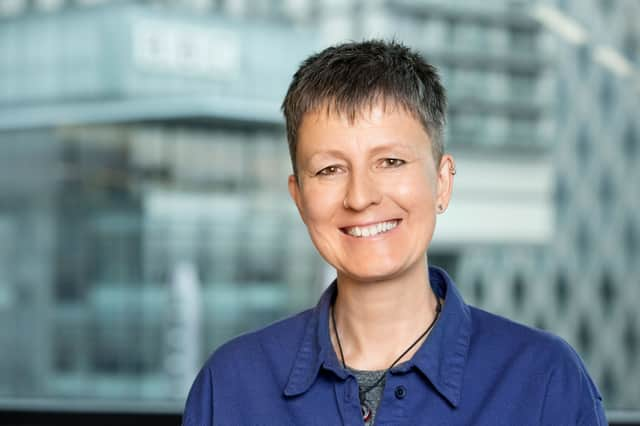'Local Radio isn’t going anywhere' - BBC chief on plans to 'modernise' services


I am passionate about Local Radio, it’s quite simply part of who I am and what I do.
And so I want to do three things: I want to explain why we need to make some changes, I want to reassure you that local radio isn’t going anywhere, and I want to let you know BBC local services are the heart of the BBC.
Advertisement
Hide AdAdvertisement
Hide AdI’ve been working in local radio for as long as I can remember. I began as a student and some 35 years later I’m still here.
You might have read or seen all sorts of stories about “the end of local radio & cuts to services,” and how those making changes don’t understand or cherish it.
I can tell you that’s just not the case. Change is always challenging – and people love local radio just like I do, so no wonder feelings are running high.
So what’s really happening and why should you care and believe in the future like I do?
Advertisement
Hide AdAdvertisement
Hide AdFor more than a decade now the number of people listening to BBC local radio has been trending downwards, people are changing their habits. We’re increasingly getting our news, weather and sport instantly on smart phones and social media, listening to podcasts and binge watching the telly.
For everyone, including older people, the internet has overtaken radio as the number one source of news. It's true we make great programmes but they don’t provide the same value for money for people that they once did.
We need to take that trend seriously, it’s quite a hint!
We’ve got to make sure our great local stories and content are increasingly available in places where audiences are going. If we don’t do that we’ll become increasingly unimportant and irrelevant to local life. I don’t think that’s good public service.
But there’s much to look forward to, and I can categorically state local radio isn’t going anywhere.
So what are we doing?
Advertisement
Hide AdAdvertisement
Hide AdWe’re going to move 10 percent of our budget into on demand and online services, and like anyone else we have to balance our books.
To do this we will need to share some afternoon, evening and weekend programmes where smaller audiences are listening. In our new schedules we’ll have weekday breakfast and daytime programmes as live and local as they’ve always been, along with daytime local news bulletins and all our local sport coverage.
Sport is so important in our areas, and even now we do podcasts that thousands of footie fans enjoy.
In the North West BBC Radio Manchester and BBC Radio Merseyside will have local programming from 6am to 6pm with shared programming in the evenings and weekends, BBC Radio Lancashire and BBC Radio Cumbria will share afternoons from 2pm to 6pm, weekends and evenings and BBC Radio Newcastle and BBC Tees will share afternoons, evenings and weekends too. We’ll still have the ability to stay live and local if there’s a crisis. We’ll also have our digital services to get to grips with a story even quicker.
Advertisement
Hide AdAdvertisement
Hide AdHow will that affect the strong connection people feel with their local stations? I believe it will be just as strong.
We know the right presenters cross county lines and people tune in from far and wide.
The shared programmes will have brilliant presenters with warmth and energy who give listeners an emotional connection to their area and make their shows an appointment to listen.
They’ll have the best stories, callers and great guests resulting in high-quality enjoyable programmes.
Advertisement
Hide AdAdvertisement
Hide AdIn fact, far from there being less local output there’s going to be even more, just provided in different ways; on news online, on BBC Sounds with podcasts for local communities, and skilled social media producers ensuring stories reach far more local people than just on your local radio station.
We’re also investing in a new team in Sunderland providing stories for every different platform and we’ll have brand new regional investigation units in Newcastle and Salford digging out stories across both patches, and a unit focussing on longer local investigations for iPlayer and network TV.
We’ve already made some great material for BBC iPlayer in both the North West and North East for example “Caught in the Crossfire” about the death of Olivia Pratt -Korbel in Liverpool and “30 Years For Justice” about Nikki Allan’s murder in Sunderland.
We are committed to Local, in all its glory. The BBC’s “Across the UK” plan sees an extra £700 million of licence fee payers money being spent outside of London.
Advertisement
Hide AdAdvertisement
Hide AdThat’s money being invested in the North East and North West providing jobs and a significant boost to our local economies.
We’re not giving up on local – far from it – we’re future proofing it, modernising and making sure everyone gets value for money from the Licence fee. We care about it.
That’s what’s happening and it’s a bright future.
Comment Guidelines
National World encourages reader discussion on our stories. User feedback, insights and back-and-forth exchanges add a rich layer of context to reporting. Please review our Community Guidelines before commenting.